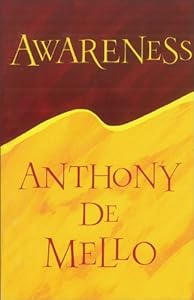 Image via Wikipedia
Image via Wikipedia
I am reading The case for working with your hands: or why office work is bad for us and fixing things feels good by Matthew Crawford. I'll possibly review it later but here's a passage, from page 91:
Countless times since that day, a more experienced mechanic has pointed out to me something that was right in front of my face, but which I lacked the knowledge to see. It is an uncanny experience; the raw sensual data reaching my eye before and after are the same, but without the pertinent framework of meaning, the features in question are invisible. Once they have been pointed out, it seems impossible that I should not have seen them before.
This is a common observation and many people will recognise it. But it is also something we don't necessarily acknowledge as a matter of course.
To put it negatively we often fail to pay attention and it is being attentive that is at the core not only of working with our hands but also of spirituality. Indeed, spirituality is essentially paying attention. You can have something pointed out to you but someone must have paid attention at some point in order to be able to point it out. Paying attention is hard work, often the experience of being stuck leads to someone paying attention to some detail after hours of frustration.
Paying attention is at the core of prayer. When we pray, it is not God who is revealed to us but reality through God. I think it was Anthony de Mello who said something like, asking God to reveal himself is like asking a knife to cut itself.
Prayer is about encountering reality, as it is, independent of our plans and strategies. It is not hectoring God about what we need in order to do our thing, but simply being aware of what is there and needing our attention. Indeed the god who needs to be hectored is no god, just a fantasy. God is never revealed but always reveals.
In my other blog, Exploring Ecumenism, I have frequently visited the idea of conversation and its power to transform. The mistake we make in too many religious debates, is to expect the world to be final and perfect. What we find is a world not of unchanging perfect entities but of many things in relationships, in conversation, imperfect, sometimes free, sometimes imprisoned, extremely complex and always stumbling across new things. This is what makes the universe the place where we encounter life, because all is in relationship with God.
We are conscious beings and it is through prayer our consciousness becomes disciplined enough to apprehend the genuinely new amongst the pointless frustrations of our fantasies.














Recent Comments